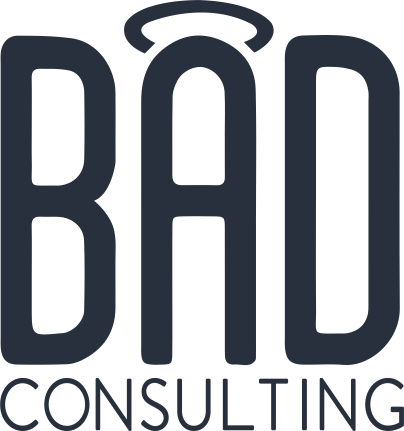Knowing when to move on as a consultant is a weakness of mine. As long as I see any kind of potential in the client, I am staying, until that potential is taken from me. Honestly, I wish I knew how to shut down this optimism because it would do me and my business a world of good.
The good thing is that after I am no longer their consultant, I can always see the signs that should have told me to fire a client long before now. I may have ignored them at the time, but I still saw them. I just kept on going because it felt like the right thing to do even though it definitely was not.
So yes, this is more of a learn-from-what-I’m-doing-wrong-as-a-consultant kind of post. But that’s fine. Maybe at some point I will learn from these mistakes as well.
Client doesn’t understand what you do
I have had loads of clients who started off not understanding social media. They fell into a few different camps. One was a group who just was constantly chasing after the next shiny thing. The next was forced into doing social media and was constantly hostile about it. Another thought they knew everything about it, but probably knew the least of how social media actually worked. And finally, my favorite group was those who knew they didn’t know anything and wanted to learn more. This is of course in addition to those who do know a thing or two about social media.
I wish every client came in with a name tag that identified who they are, but they don’t. And until we’re in the thick of a client-consultant relationship, I have no idea exactly what kind of person each client is. I have a survey that I use that can somewhat identify what I am working with, but that’s not even foolproof. I sometimes go into a working relationship thinking I have someone who knows a lot about social media and they end up as someone who is just chasing shiny objects or they are someone who really doesn’t know anything about how social media works.
But after years of doing this, I have realized that I can’t work with anyone who doesn’t understand what I do and has no interest in learning. So as soon as I identify a client belongs to one of the other groups, it’s time for me to move along. I can’t force someone to care, as much as I think I can. And I can’t teach anyone who doesn’t want to learn. So really, I need to let go as soon as I discover that person is not my client. And get ready to move on.
Client doesn’t respect you
One of my big selling points as a consultant is that I am super flexible and am pretty quick to respond. Sometimes, this is used against me.
I try to set reasonable boundaries and spell them out in my consultant contracts with clients. But with some clients, they start tiptoeing over those boundaries, and before you know it, you can’t even see them anymore. It then becomes clear that the client doesn’t care about your boundaries or certainly does not respect you.
Especially in my case since I have boundaries listed in my contract, reminding clients of the boundaries they have already agreed to when they try to step over the line should be a no-brainer. Even if you decide it’s okay to break that boundary just this once, a gentle reminder is necessary. Because if they break it once, they will break it again and again, so reminding them of the boundary and letting them know this is a one-time thing is especially important.
If your client continually crosses the boundaries you set with little to no remorse, then they are not respecting you. It will only get worse, no matter what you do. It’s time to move on to someone else.
Client doesn’t listen
This has been the worst for me. I can take getting my boundaries broken and I can take someone not caring to understand what I do. But not listening to me as a consultant is the thing that will send me into a full-blown depression. I don’t understand why you would hire someone and totally disregard their advice. I also don’t understand why you’d get in the way of someone doing their job. And yet it happens. A lot.
I can’t make someone listen to my advice, and as soon as I see signs that a client is continuously disregarding my advice, it’s time to get out. But I stay.
What ends up happening is the work slides and is no longer representative of what I do. So it ends up being bad for the client and for me.
The worst thing is that I sometimes can find a way around this, so in the back of my mind I think that you can work around a client. You can’t. At some point, they will realize you’re working around them and it will get ugly. It’s best just to move along instead.
There are many reasons not to move on from these toxic situations whether it’s the economy or fear. But above all, I want you to understand something I can’t: It will not get better. It is more likely to get worse. Find a way to get out before it starts hurting you personally and professionally.

